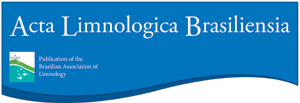Abstract
Aim: This study investigated changes in copepod abundance and the influence of environmental variables in a reservoir with fish farming using cages, on temporal and spatial scales. We hypothesised that the copepod abundance will increase when influenced by changes in environmental variables due the increase of nutrients originating from fish farming.
Methods
A 120-day sampling of copepods and environmental variables was carried out in a subtropical reservoir of the Paraná River basin (Rosana reservoir), upstream and downstream of three sets of cages with different fish stocking densities. A Principal Component Analysis was conducted to characterise sampling periods and points through environmental variables. The differences between copepod abundance according to sampling periods and points were tested by ANOVA.
Results
We observed higher maximum values for most nutrient concentrations and dissolved oxygen in the final stage of the experiment and in the location of cages installation. The copepod abundance increased sharply during the first days of the experiment and then decreased during the following periods with a tendency towards returning to the initial conditions at the final stage of the experiment. A significant difference in copepod abundance between the location of cages installation and downstream was showed. In addition, turbidity, chlorophyll-a, and nitrate significantly predicted copepod abundance.
Conclusion
The results suggested that the changes in copepod abundance over time are influenced by environmental variables, evidenced by the increase in nutrient concentration after the cage installation, related to the increase in the practice of fish farming. The environmental variables related to system productivity were linked to the availability of food resources. Thus, our hypothesis that copepod abundance is increased due the alterations in environmental variables caused by the increase in the practice of fish farming using cages was corroborated.
Keywords:
zooplankton; copepoda abundance; environmental variables; fish farming

 Thumbnail
Thumbnail
 Thumbnail
Thumbnail
 Thumbnail
Thumbnail
 Thumbnail
Thumbnail



